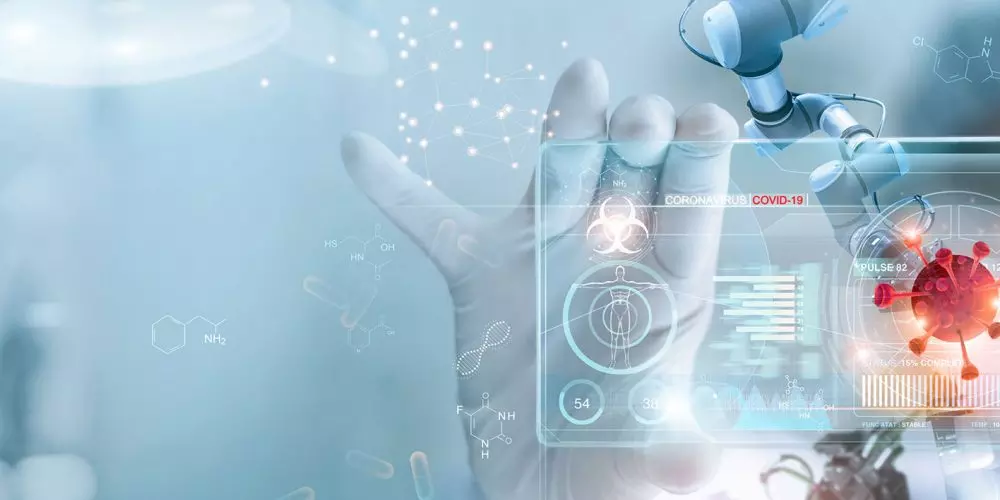Through the GRC Lens – March 2020
- GRC
- 13 April 20

The Battle Against COVID-19
As the fear of the COVID-19 pandemic grips the world, there are some rays of hope emerging. The medical fraternity has been working overtime to find a solution to treat the virus. Discover what made it to the headlines in March, through the GRC Lens.
The increasing spread of COVID-19 has disrupted lives and businesses worldwide. The underlying fear of a severe economic downturn has added more stress to the already challenging reality of living in this terribly crippling and uncertain pandemic. Safeguarding our lives and livelihoods has become an imperative.
Tech organizations across the world are stepping up to do their bit for public health. As reported by the World Economic Forum, P&G promised to produce 45,000 litres of hand sanitizers weekly. The software-giant Google pledged a total of $800 million to support small- and medium-sized businesses, governments, health organizations and health workers fighting COVID-19. Nestlé is providing emergency help – donating food, medical nutrition products, bottled water and EU 9.5 million to countries in the greatest need. Apple also announced that they would be donating 10 million masks to the medical community in the United States, and millions more for the European regions hit hardest by the COVID-19 pandemic.
The Brighter Side
Everyone is contributing during the global health crisis in their own way. But healthcare professionals, often the minesweepers, have outdone themselves.
Media reports show that while enormous efforts are put into stabilizing the economy through public-policies, governments and healthcare officials around the globe are trying to flatten the curve, with extensive research into finding a cure for the SARS-CoV-2 virus. As pressure on the global health care workforce continues to intensify amidst the COVID-19 outbreak, the tireless work and self-sacrifice of the “healthcare heroes” show the best of humanity.
However, the demands on the already stressed medical systems continue to increase with every passing day. Although, developing new vaccines, confirming that they are safe, and finally testing them on humans can take time, the good news is that we are doing it quicker than ever before.
Researchers and scientist around the world are racing against time to develop vaccines and medical treatments to tackle COVID-19. Since it was first discovered, medical researchers have been trying to understand its genetic makeup, how the virus invades human cells, and how to treat it effectively.
The push to develop a corona vaccine is moving at high speed. Studies of other similar viruses, like the SARS and MERS virus are giving researchers a head start. According to Vox, “Many of the vaccine and drug development efforts are building on past efforts to deal with other viral outbreaks, including coronaviruses like MERS and SARS.”
Whether these solutions are safe and effective, only studies and trials will tell. For now, there is a global effort in progress at a record-breaking speed.
Cutting-edge medical innovations
Global health experts have been meeting at the WHO headquarters to identify gaps and fund priority research. “Harnessing the power of science is critical for bringing this outbreak under control,” said WHO Director-General Dr Tedros Adhanom Ghebreyesus. “There are questions we need answers to, and tools we need developed as quickly as possible.”
In the last month, the world has seen the most cutting-edge innovations in medical history. Here are some examples:
- DIOSynVax, a vaccine development company working out of the University of Cambridge, is trying to create a vaccine using a computer modelling of the virus’s structure to determine weak spots in the SARS-CoV-2 DNA.
- UV light-emitting robots are being used to zap the virus in hospitals. The light destroys viruses, bacteria, and other harmful microbes by damaging their DNA and RNA, meaning they can no longer multiply.
- To help fight COVID-19, Siemens opened their Addictive Manufacturing (AM) Network and 3D printers for hospitals and other health institutions needing spare medical parts to efficiently manage their design and printing requests.
- An editorial in the journal Science Robotics, argued that covid-19 could drive new developments in robotics — and that the devices could help with more effective diagnosis, screening and patient care, reported the Washington Post.
- Predictive Oncology has launched an AI Platform, that can screen the ideal combination of additives and excipients for protein formulations, for the discovery and development of vaccines against coronavirus.
Trial and testing of new vaccines
The increasing focus on finding a vaccine has opened new doors in medical science. All over the world, pharma companies are working on developing medicines to stimulate the immune system.
Although there are dozens of solutions in the pipeline. Some of the most promising ones are getting ready to be tested on humans. Recently, Johnson & Johnson said human tests of its experimental vaccine will begin by September. In another report in the Guardian, medical authorities in China have said a drug used in Japan to treat new strains of influenza appeared to be effective in coronavirus patients. Meanwhile in Japan, a pharmaceutical company, Takeda, said its blood plasma-derived therapy against coronavirus, currently in development, has the potential to be among the first approved treatments for the deadly pathogen.
Chloroquine, an anti-malarial drug, and HIV-suppressing combination lopinavir/ritonavir, is also being tested by scientists in Australia, and being re-evaluated by the WHO as an effective curative agent.
In India, Cipla, a drug major, is actively working with The Indian Council of Medical Research and scientists from the Indian Institute of Chemical Technology, fast-tracking the development of Covid-19 drugs by re-purposing its wide portfolio of respiratory, asthma, antivirals, and HIV drugs. It could be the first company in India to manufacture new drugs for Covid-19, reports suggested.
As we continue to navigate and fight the COVID-19 crisis, the healthcare industry is collaborating across the globe. The rapid reset to thinking innovatively in healthcare has been on display. And even though the storm hasn’t been weathered yet, we can hope for some path-breaking developments in healthcare services and technology.
The coronavirus has changed the way organizations will perceive and tackle risks, both in the present and the future. In medicine, it has spurred faster research and testing techniques. In business organizations it has drawn attention to more effective risk management with the objective towards business continuity and resilience.
As a GRC company, we believe it is imperative to collaborate across the board with government bodies, educational institutions, and others to share our expertise and experience of best practices on how better risk governance in all sectors can help reduce the crippling force of crises such as the COVID-19 pandemic, in the future.







